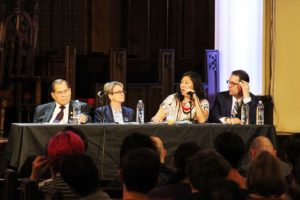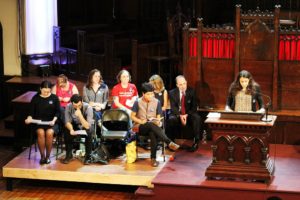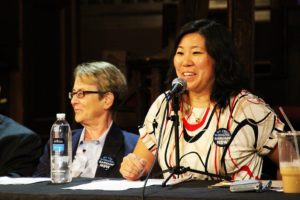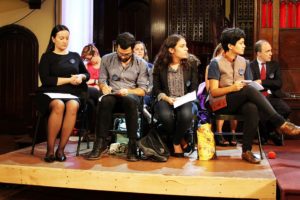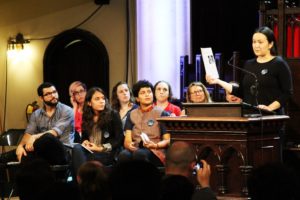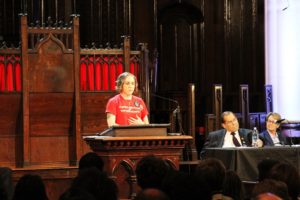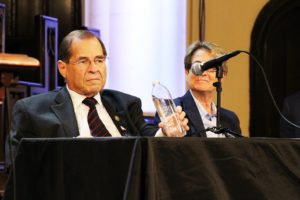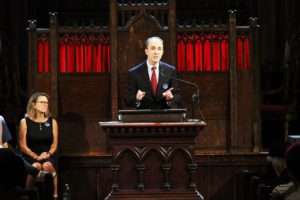
Elected Leaders Pledge Support at Grad Workers’ Rights Forum
Research and Teaching Assistants from across campus packed Broadway Presbyterian Church on September 20th as colleagues from Columbia, Yale, The New School, University of Chicago, and the University of Connecticut testified to a panel of local elected leaders about the effects of the Columbia administration’s refusal to respect our 72% yes vote. The panel, which included local Congressional leaders Jerry Nadler and Grace Meng, Assemblywoman Deborah Glick, and City Councilman Mark Levine resoundingly pledged their support for calling on the Administration to respect our vote and for helping us win a fair contract.
Elected leaders who heard our stories share a stake in our work at Columbia, both as Research Assistants doing federally-funded research and also as Teaching Assistants who provide top-notch education at one of New York’s prized institutions.
RAs help bring roughly $1 billion per year to Columbia for research on cancer, climate change, and more, which both maintains Columbia’s world-class research mission and provides a major economic engine for New York City and the state.
One main reason graduate workers voted 72% for a union was to negotiate more stable conditions that allow us to focus on our work. By refusing to bargain, Columbia not only undermines basic democracy, but also undermines our ability to address some of the most common barriers to doing quality research and teaching.
Graduate workers’ testimony touched on both the intense efforts by administrators’ to avoid unionization and some of the many issues that a majority of us would like to address through collective bargaining: lack of security in RA and TA positions, deteriorating lab facilities, chronic problems with late pay for RA and TA work, lack of effective recourse for sexual harassment, and unstable and unpredictable health benefits.
Grad worker testimony made clear that by refusing to bargain with our union, Columbia is blocking our ability to work as equal partners on important shared interests, such as improving gender equity within the academy, expanding protections for international academic workers, and fighting to protect and increase federal funding for scientific research, all of which face increasing threats from the Trump administration.
Columbia has a choice – it can respect the law and the democratic will of its graduate workers, or it can try to wait us out, hoping that President Trump’s new National Labor Relations Board will side with the Administration. At our forum, we made the case for respecting the vote and building a better Columbia together. We also made clear that we won’t stop organizing until we have a fair contract.

